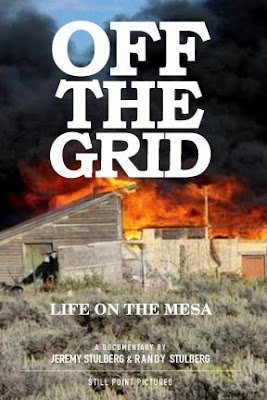
THE SOLDIER’S TALE (Penny Allen, France/US, 2007, 52 min.). THEMES: PTSD (ANXIETY DISORDERS); IMPACT OF MENTAL ILLNESS ON THE FAMILY (FAMILY); DIVORCE (RELATIONSHIPS); POST-TRAUMATIC PERSONALITY CHANGES (PERSONALITY DISORDERS); WAR (SOCIAL & LEGAL ISSUES). In 2004, Penny Allen, an American narrative filmmaker who has lived and worked in Paris for the past 15 years, was flying home to Portland, Oregon, because of her mother’s death. By chance, her adjoining seatmate was a soldier, an Army Sergeant, who was returning home on leave at the midpoint of his 12-month deployment in Iraq (he is referred to only as “Sgt. R.”) They struck up a conversation about Sgt R’s experiences in Iraq. Subsequently, and unexpectedly to Ms.Allen, he sent to Paris many still photos and a video entitled “War is Hell” filmed by Sgt. R and a number of his soldier buddies during their tour of duty. He expressed to Ms.Allen his hope that she would use the material to increase public awareness of the awful nature of war.
Moved by her encounter and the visual material, some of it disturbingly graphic, Ms. Allen set forth to film a documentary for French television. To complement the in-country material, she also conducted and filmed a five hour interview with Sgt. R, about a year after his return. The result is The Solder’s Tale, a brief (52 minute), balanced, apolitical and entirely arresting story about the rigors of insurgency and counterinsurgency combat, spanning not only the uncertainty of survival and the anguish of loss and maiming of lives, but also the exhilaration and lure that soldiering can elicit. The difficulties coming home, including marital disruption, and clear signs of chronic post-traumatic stress disorder (PTSD), are also addressed. This film’s one significant flaw is that, in edited scenes from the 5 hour interview conducted by Ms. Allen with Sgt. R, her voice comes through loud and clear, but the Sergeant, unfortunately, is a mumbler, and one misses a number of his presumably important comments. In spite of this drawback, and my wish for a longer, somewhat deeper presentation, I find this to be one of the most poignantly revealing war stories I have viewed on screen. Penny Allen was present at this screening to provide the backstory of the making of the film. She has posted several photo strips prepared from Sgt. R's material which can be seen at her website, http://www.pennyallen.info. Grade: A- (01/07)
Moved by her encounter and the visual material, some of it disturbingly graphic, Ms. Allen set forth to film a documentary for French television. To complement the in-country material, she also conducted and filmed a five hour interview with Sgt. R, about a year after his return. The result is The Solder’s Tale, a brief (52 minute), balanced, apolitical and entirely arresting story about the rigors of insurgency and counterinsurgency combat, spanning not only the uncertainty of survival and the anguish of loss and maiming of lives, but also the exhilaration and lure that soldiering can elicit. The difficulties coming home, including marital disruption, and clear signs of chronic post-traumatic stress disorder (PTSD), are also addressed. This film’s one significant flaw is that, in edited scenes from the 5 hour interview conducted by Ms. Allen with Sgt. R, her voice comes through loud and clear, but the Sergeant, unfortunately, is a mumbler, and one misses a number of his presumably important comments. In spite of this drawback, and my wish for a longer, somewhat deeper presentation, I find this to be one of the most poignantly revealing war stories I have viewed on screen. Penny Allen was present at this screening to provide the backstory of the making of the film. She has posted several photo strips prepared from Sgt. R's material which can be seen at her website, http://www.pennyallen.info. Grade: A- (01/07)



























